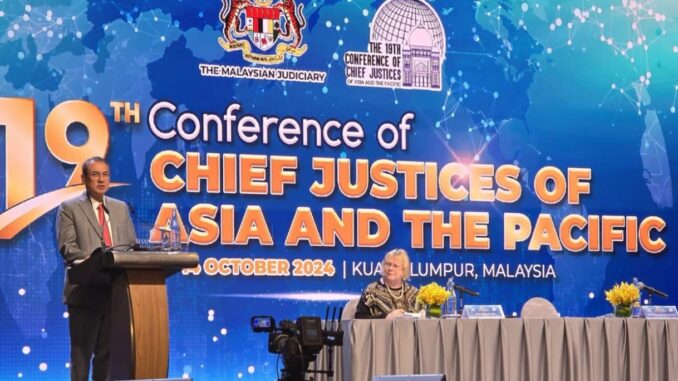
Artificial Intelligence (AI) should support judicial efficiency but never replace the human elements of justice, according to Supreme Court Chief Justice Alexander Gesmundo.
The Chief Justice spoke before his fellow judiciary leaders at the 19th Conference of Chief Justices of Asia and the Pacific being held from October 11 to 14, 2024, in Kuala Lumpur, Malaysia.
“Courts should still be populated with human judges if we are to expect that empathy and compassion would still go into the consideration of granting equitable remedies,” he said.
Gesmundo emphasized the transformative role of technology, particularly AI, in reshaping the judicial landscape.
Likewise, he underscored the moral responsibility of judiciary leaders to guide their
institutions through these rapid technological changes.
Gesmundo discussed the significant potential of AI to assist judges in streamlining administrative tasks, expediting legal research, and predicting judicial outcomes.
Citing examples from foreign jurisdictions, he noted that AI is already used in courts for tasks such as examining evidence and preparing case files.
Meanwhile, he also cautioned against overreliance on AI arguing that while it can enhance judicial processes, it lacks essential human qualities like empathy, ethical discretion, and the ability to adapt to societal changes—elements crucial for ensuring that justice is not only administered efficiently but also fairly and compassionately.
Gesmundo concluded his remarks, stressing the courts’ role in ensuring that AI remains a tool for judicial efficiency without compromising the integrity and human-centric nature of justice.


Be the first to comment